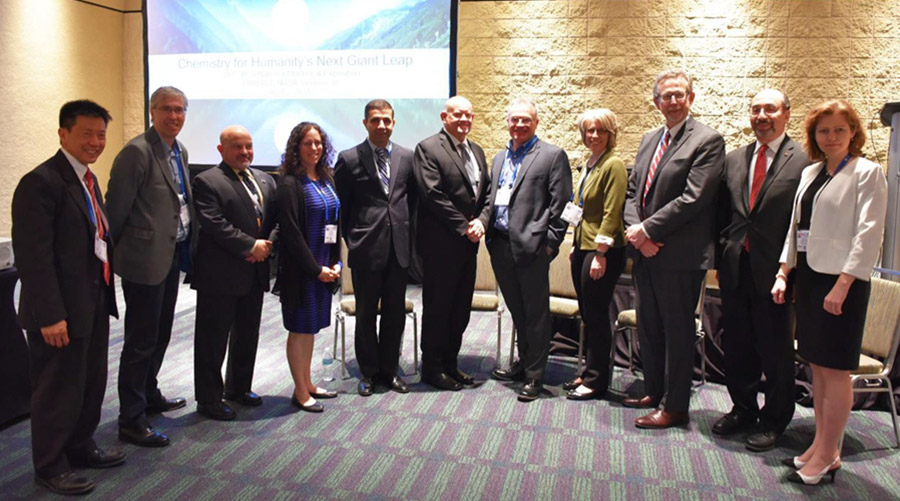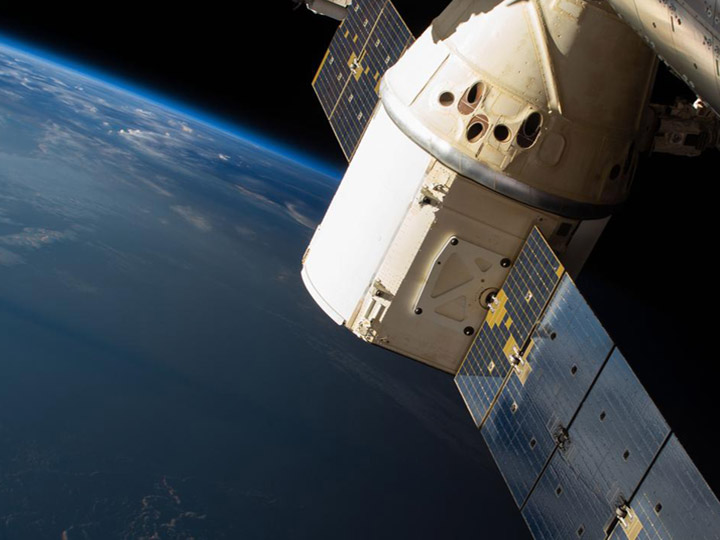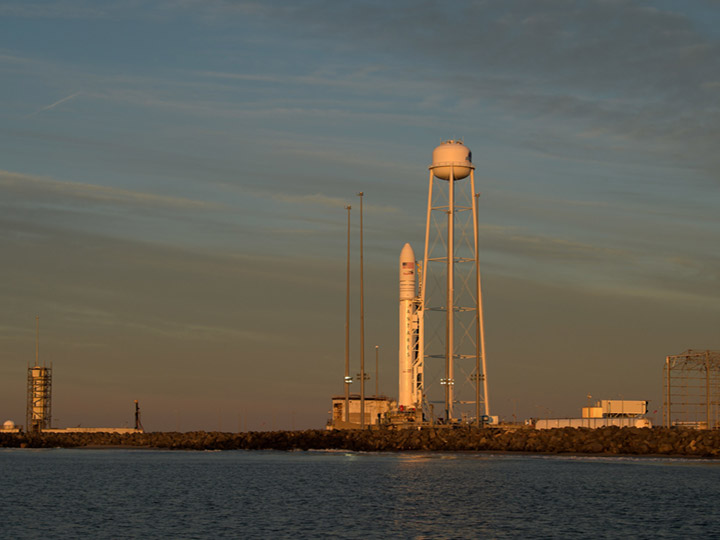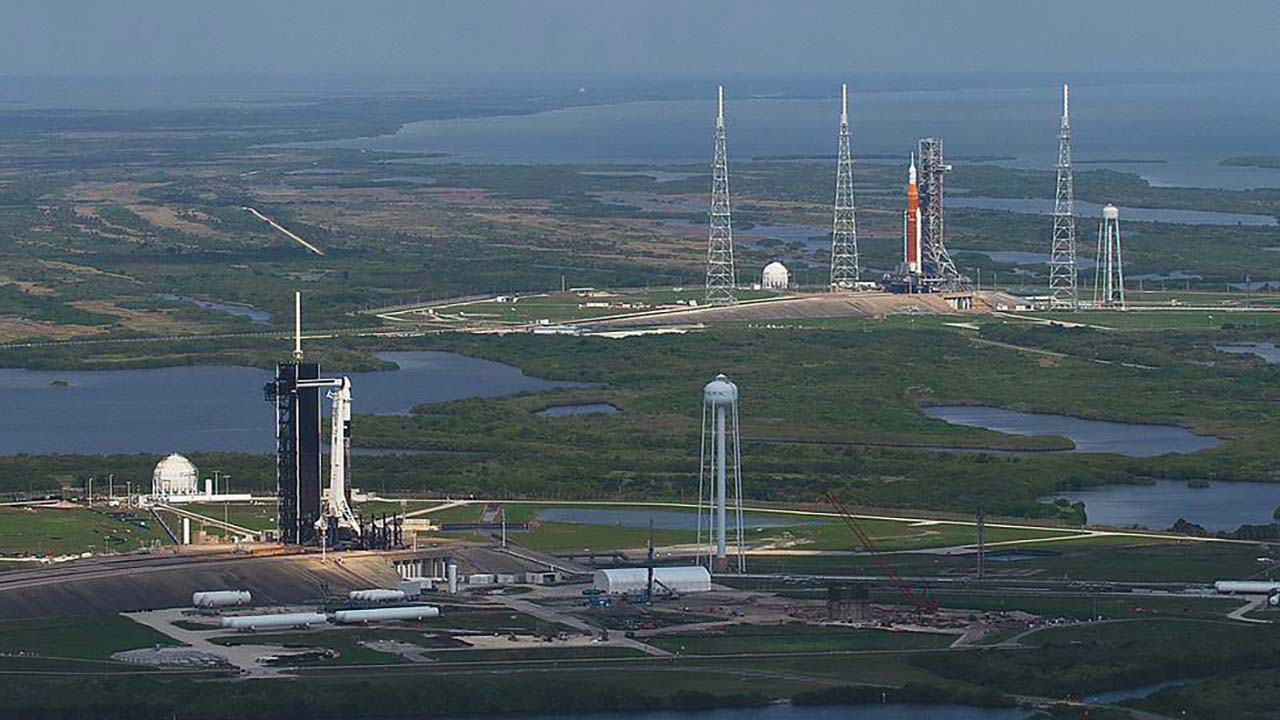At a Glance
- There has been a growing effort to expand space-related chemistry sessions at the American Chemical Society National Meeting, and this year’s spring meeting included a two-day space-focused symposium.
- The first day was centered on NASA and research organizations in the NASA network, while the second day focused on space-related work in industry and academia that helps enable the space program.
- ISS National Lab Associate Program Scientist Dr. Kenneth Savin spoke on a panel that focused on chemistry to advance the space program and ways that industry and academia can impact the space program in the future.
- The panel discussed the role of the ISS National Lab in the democratization of space and the need for new technology and new players in the space industry to transition low Earth orbit into a robust space economy.
At the American Chemical Society (ACS) National Meeting and Expo in Orlando last week, International Space Station (ISS) National Lab Associate Program Scientist Dr. Kenneth Savin spoke at a panel session that was part of a two-day space-focused symposium called “Chemistry for Humanity’s Next Giant Leap.” Other speakers on the panel included Erika Wagner of Blue Origin, Scott Copeland of Boeing, Medhi Afshari of DuPont, and Tara Ruttley of NASA, who served as the moderator. Below, Dr. Savin shares some highlights from the meeting.
NASA and ACS members have led a growing effort to expand ACS meeting sessions describing space-related chemistry, and the spring ACS National Meeting and Expo last week included a two-day symposium focused on NASA and science in the space program.
The first day of the symposium focused heavily on NASA and researchers from several laboratories that are part of the NASA network, who presented the work of their organizations. In addition to NASA, representatives from Cal Tech, SyMO-Chem, and Eindhoven University also presented.
The second day of the symposium focused on the work in academia and industry that is related to and, in many cases, enables the space program. After NASA Chief Scientist James Green gave an opening address, speakers from DOW Chemical, Harris Corporation, Northrop Grumman, Exxon Mobile, and Johnson & Johnson discussed their companies’ efforts to contribute to the space industry in the areas in which the companies are best positioned. The question-and-answer session that followed delved into a mix of industry impact and longer-term planning questions as well as questions related to science, technology, engineering, and mathematics (STEM) education efforts to further engage young people in space-related activities.
The second panel, which included myself and speakers from Blue Origin, Boeing, and DuPont, focused on chemistry to advance the space program and future ways that both industry and academia can impact the space program. The discussion was centered on three focus areas: 1) science conducted to enable work in space, 2) science conducted that is enabled by the space environment, and 3) science that is enabled by the space environment that will enable further work in space. The third focus area, which highlights the commercial benefits of doing work in space, is where things really take off for transitioning low Earth orbit into a robust space economy. Panelists used Sutter’s Mill as an analogy: As soon as people get word that someone has “struck gold,” others will follow.

Speakers at the ACS "Chemistry for Humanity’s Next Giant Leap" symposium, including International Space Station U.S. National Laboratory Associate Program Scientist Kenneth Savin (fifth from right).
Media Credit: Image courtesy of American Chemical Society
The panel presented an overview of the current technology that has enabled work in space as well as new technologies, such as novel materials (fibers, coatings, etc.), that have been developed to address emerging needs to advance space exploration. However, panel members also eluded to the need for continued development of new technology to further advance beyond what is currently available. For example, the Sabatier system that is so critical for the removal of CO2 and the production of water on the ISS is based on technology that is more than 120 years old.
The panel also discussed new players in the space industry who are bringing new approaches to the table. As highlighted by Erika Wagner of Blue Origin, by enabling access to low Earth orbit, the ISS National Lab is providing opportunities that are helping to democratize space-based science. Space is no longer exclusively for NASA pioneers, and the opportunity to be a part of humanity’s next steps into space and the benefits it will bring is available to big industry, small startup organizations, other government agencies, and academia.
Scientists and different thinkers who have not been part of the space program in the past are needed to step up and lend their expertise and enthusiasm to make future space exploration and commercialization possible and ultimately profitable for everyone. Now is a great time to be a part of the effort as more launch options become operational, providing more opportunities to leverage low Earth orbit for Earth benefit.
The most powerful question in the question-and-answer session was centered on the democratization of space. Possible indicators that space-based science is becoming mainstream include the following:
- Big U.S. companies are coming to the ISS National Lab to do science in space as part of their regular technical research and development (R&D) efforts.
- Big U.S. companies that are not considered “technical” are engaging in space-based R&D on the ISS National Lab. Big-brand companies that people interact with every day are starting to do science in space. These companies want to learn from the space program and contribute and influence the space programs of the future.
At the symposium, ACS representatives voiced interest in having a larger regularly occurring symposium focused on space science, beginning at the ACS National Meeting and Expo in spring of 2020. This year’s two-day symposium was sponsored by 31 divisions of the ACS. Being sponsored by so many different parts of the ACS is a rarity and a signal that science programs focused on furthering the space program and the science being done in space is becoming a significant part of mainstream science. Furthermore, in the future, the results of chemistry and other science conducted in space are poised to have an even greater impact on how we understand science and the universe around us.

Speakers at the ACS "Chemistry for Humanity’s Next Giant Leap" symposium, including International Space Station U.S. National Laboratory Associate Program Scientist Kenneth Savin (fifth from right).
Media Credit: Image courtesy of American Chemical Society






